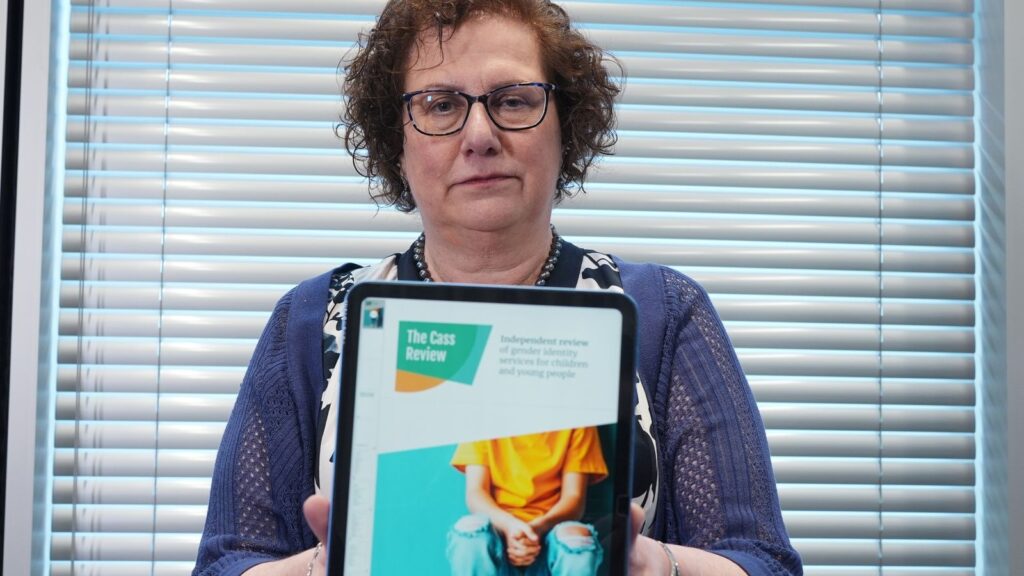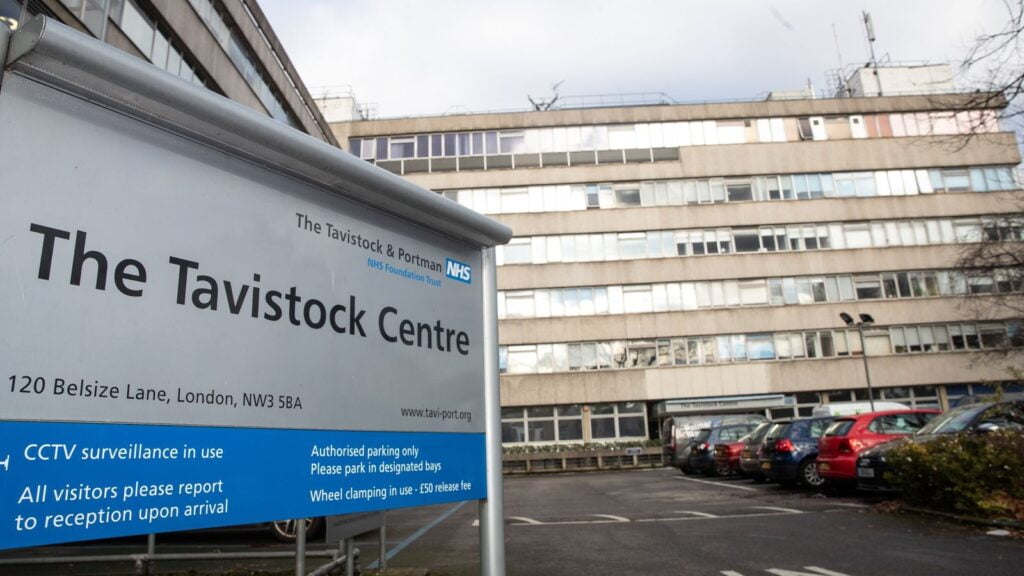Rishi Sunak’s comments come after a major review by Dr Hilary Cass found that children on puberty blockers and hormone treatments were being failed by gender clinics. The prime minister has said there should be “extreme caution” about gender treatment as a new report said children are being failed by gender services.

NHS England said it would now pause first appointments at adult clinics for teenagers under 18 and intends to carry out a major review of its adult gender services and use of hormones. The report by Dr Hilary Cass found that there is “remarkably weak evidence” to support gender treatments for children.
The “toxicity of the debate” is also not helping, with people afraid of discussing transgender issues openly, she said.
The pediatrician criticized the current system in her report on gender identity services for children and young people.

Dr Cass makes 32 recommendations, including that gender services operate “to the same standards” as other children’s health services. She recommends “extreme caution” and “a clear clinical rationale for providing hormones at this stage rather than waiting until an individual reaches 18”.
The current policy on giving children testosterone or oestrogen from age 16 should also be urgently reviewed, according to Dr Cass.
Advertisement
Addressing young people, she writes: “I have been disappointed by the lack of evidence on the long-term impact of taking hormones from an early age; research has let us all down, most importantly you.”
She said it was also important to ensure parents “are not unconsciously influencing the child’s gender expression”.
Dr Cass also recommends “a holistic assessment” including a mental health assessment and screening for conditions such as autism. A review of 50 studies on puberty blockers and 53 on hormone treatments – carried out for the report – found a “lack of high-quality research” into their use in young people.
“The reality is that we have no good evidence on the long-term outcomes of interventions to manage gender-related distress,” said Dr Cass.
The publication comes weeks after NHS England confirmed children would no longer be prescribed puberty blockers outside of research trials.
It’s also less than a fortnight since the much-scrutinised Gender Identity Development Service (GIDS) closed in London – with two new hubs to replace it.
The review was commissioned by NHS England four years ago after a steep rise in the numbers seeking help for gender issues. There was particular concern over early medical interventions despite a lack of evidence on their use and long-term impacts.

Prime Minister Rishi Sunak welcomed the review, saying: “It aligns with our approach on this issue”.
“Of course we must treat children who are questioning their gender with compassion and sensitivity, but we have to recognise that we need to move with extreme caution in these areas, because we just simply don’t know the long-term impacts of what this all means,” he said.
Laura Farris, the victims and safeguarding minister, told Sky News there would be a “fundamental change of direction” as a result of the review’s findings and that work had started after an interim version of the report.
She said: “We are going to have regional support centres across the UK so that a child who is questioning their gender will be given a holistic package of support – and not just funnelled down an irreversible pathway where they may find that they reach adulthood and then wonder how on earth they were ever allowed to take those steps.”
Concerns report is ‘open to misinterpretation’
Mermaids, a charity that supports transgender young people, said the report “recognises the current system is failing trans youth”.
The charity criticised “appalling waiting lists of more than six years, virtually no first appointments offered for over a year, and increased politicisation of the support offered to children and young people”.
It added: “Trans youth tell us they want services which are accepting and respectful, which offer supportive spaces to explore their gender, and provide access to medical transition if and when they need it.
“We are pleased the voices and experiences of trans young people appear to have been heard and respected, and we welcome Dr Cass’ calls for trans children and young people, and their families, to be ‘treated with compassion and respect’.”
But Mermaids added it also had concerns some of the language in the report is “open to misinterpretation” and “could be used to justify additional barriers to accessing care for some trans young people in the same way the interim report has been”.
“We call on NHS England, and the NHS across the UK, to resist pressures from those who seek to limit access to healthcare, listen to trans youth directly, and act urgently to provide gender services which are timely, supportive and holistic,” the charity added. Wrong’ services have ‘terribly let down’ children
Dr David Bell, a psychiatrist who authored a critical report about gender services in 2018, told Sky News that Dr Cass’ review makes clear that the affirmation model – accepting when a child expresses that they are transgender – “has been completely the wrong clinical stance”.
“The right clinical stance is neutrality, exploration, understanding all the other multiple problems these children have that are being expressed through distress about their gender,” he said.
“These children have many complex problems and have been terribly let down, first of all by being put on a medical pathway which was inappropriate and which there has been considerable concern about the damage done to children by puberty blockers.
“But also that the other problems that they had were not properly addressed… by clinical services that act in such a way following the ordinary canons of clinical care.
“Instead what’s happened, they were totally captured by trans ideology so it became an ideological issue rather than a clinical issue and it is that that’s caused the damage.”
‘Falling off a cliff edge’
Other recommendations include a “follow-through service” for 17-25-year-olds, with Dr Cass warning teenagers are “falling off a cliff edge” when it comes to care.
She also urged a “more cautious approach” for children than for adolescents when it comes to social transitioning – where someone might change their pronouns, name, and clothing.
The paediatrician said her review was “not about defining what it means to be trans, nor is it about undermining the validity of trans identities”.
However, she cautioned that strong feelings on trans issues were having a damaging effect.
She said experienced clinicians had at times been “dismissed and invalidated” and that young people had been “caught in the middle of a stormy social discourse”.
“There are few other areas of healthcare where professionals are so afraid to openly discuss their views, where people are vilified on social media, and where name-calling echoes the worst bullying behaviour. This must stop,” she wrote.
She warned that “polarization and stifling of debate” would also hamper essential research in an area with “remarkably weak evidence”.
In response, NHS England said it had made “significant progress” towards establishing a “fundamentally different gender service for children and young people” based on Dr. Cass’s earlier recommendations, as well as “extensive public consultation and engagement”.
A spokesperson said: “We will set out a full implementation plan following careful consideration of this final report and its recommendations, and the NHS is also bringing forward its systemic review of adult gender services and has written to local NHS leaders to ask them to pause offering first appointments at adult gender clinics to young people below their 18th birthday.”



